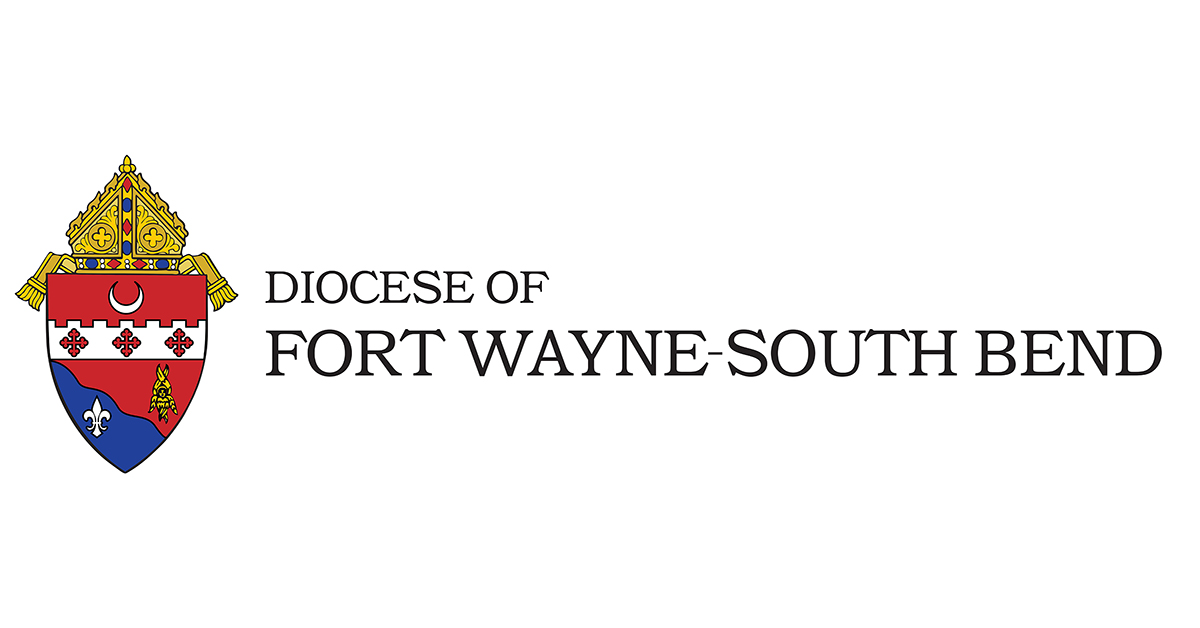November 25, 2023 // Diocese
From RCIA to OCIA: Explaining the Shift
Currently, in parishes across the Diocese of Fort Wayne-South Bend, classes are underway to help form men and women interested in knowing more about the Catholic faith – or, perhaps, interested in coming into full communion with the Church. While much of the substance of these classes is the same as in years past, there have been subtle changes made.
The process by which adults formally join the Catholic Church has traditionally been referred to as the Rite of Christian Initiation of Adults (RCIA). Two years ago, in November of 2021, the U.S. Conference of Catholic Bishops approved a new translation of the process and its corresponding curriculum, now known as the Order of Christian Initiation for Adults (OCIA).
The decision to change the name stems from the idea that the Catholic journey is continual. It is a lifelong commitment each catechumen or candidate is making to the Church.
“[The word] ‘order’ also reflects the progressive nature of this spiritual journey. OCIA is not a one-time event; it is a journey with distinct stages,” Fernando Garcia, Director of Faith Formation at St. Anthony of Padua Parish in South Bend, told Today’s Catholic.
Another reason for the name change is to more accurately portray the fact that there are multiple rites integrated into the larger process of becoming Catholic. The process itself is not one “rite.”
“There are other similar rites that mark the increasing commitment the catechumen is making to the Church, and vice versa,” Garcia said. “So, calling it a ‘rite’ was inaccurate because there are multiple rites.”
These rites include a discovery stage, a learning and consideration stage, a deep reflection period, and continued learning and growing. And while there are rites integrated into the process of becoming Catholic, not all their timelines vary in length. Hence, OCIA more accurately depicts the varied rites’ different timelines.
The OCIA curriculum guides the process, and its text encompasses how it is a lifelong journey.
As described by the Catholic News Agency, “The name change applies both to the process by which one enters the Church and the book that contains the ritual text and prayers for those steps.”
One way the text accomplishes this is through tweaking RCIA’s traditional terminology. Again, according to CNA, “individuals in RCIA were usually referred to as a ‘candidate.’ OCIA will be split depending on where the candidate is in the initiation process. Terms used will be ‘inquirer,’ ‘catechumen,’ and ‘elect.’”
OCIA also changes the categorization of those petitioning for full acceptance into the Church. The new revision includes four groups: 1) catechumens, those who are unbaptized adults; 2) unbaptized infants or young children who have not received any sacraments; 3) baptized non-Catholic Christians, Christians who have not received the sacraments of Reconciliation, first holy Communion, or confirmation; and 4) baptized Catholics seeking confirmation, or those baptized Catholic adults past the traditional age in which one is typically confirmed.
Despite these changes, OCIA’s content and philosophy is similar to RCIA. While not completely transferred from RCIA, the new OCIA will be easy to understand.
“But, in general, this is not an overhaul of the existing content; it will remain very familiar to those who have worked within RCIA,” explained Brian MacMichael, Director of the Office of Worship for the Diocese of Fort Wayne-South Bend.
The OCIA curriculum is still awaiting formal approval from the Vatican.
“A newly translated version of the RCIA book, entitled, “The Order of Christian Initiation of Adults” (OCIA), was approved in November of 2021 by the U.S. bishops,” MacMichael said. “However, final approval from Rome is still being awaited, after which the publishers would need an additional six months or so to be ready for print and distribution.”
MacMichael continued: “The new OCIA book should not be expected before Easter of 2024. Any specificity in estimated approval/implementation dates is pure speculation at this point.”
Wendy Summers is serving as a sponsor for a young woman who will formally enter the Catholic Church on Holy Saturday in 2024 at St. Pius X in Granger. As a result, Summers has witnessed OCIA first-hand.
“I love walking the faith journey with people,” Summers said. “Come to OCIA and discover what God has waiting for you. As a Catholic, the Sacrament of the Holy Eucharist, the body and blood of Jesus Christ truly present on the altar under the appearance of bread and wine, you can’t get anywhere else.”
As the Church prepares to fully transition to OCIA from RCIA, more information will be forthcoming from the diocese and local parishes.
The best news. Delivered to your inbox.
Subscribe to our mailing list today.






